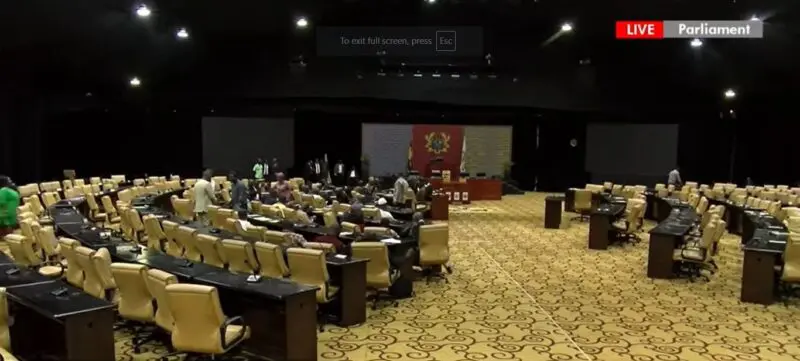The Speaker of Parliament, Rt. Hon. Alban Sumana Kingsford Bagbin’s declaration of four parliamentary seats as vacant under Article 97 of Ghana’s 1992 Constitution has reignited longstanding debates and controversies surrounding the balance of power within Ghana’s legislative arm.
This contention reached a new crescendo with the Supreme Court’s recent ruling in the landmark case of Afenyo Markin v. Speaker of Parliament & the Attorney General, which found the Speaker’s action unconstitutional.
The ruling effectively reversed the declaration, concluding that the four seats were not vacant. The case emerged against an intensely competitive Parliament where neither of the two main political parties—the ruling New Patriotic Party (NPP) and the opposition National Democratic Congress (NDC)—holds a clear majority.
However, Bright Simons, Honorary Vice President of IMANI Centre for Policy and Education, contended that the ramifications of this decision reach beyond the courtroom and into the complex arena of political manoeuvring. This ruling only partially addresses the larger political question that Bright Simons believes is at the heart of the matter.
Political Reality vs. Legal Interpretation
Bright Simons raised critical questions about the interpretation and broader implications of the Supreme Court’s ruling. He asked whether the Supreme Court specifically ruled on the party affiliation of the three MPs who ran as independents and if their membership in the NPP was truly under judicial consideration.
“My understanding is that the Supreme Court ruled that the 4 seats are not vacant. Did they also rule that the 3 ruling party MPs running as independents are still MEMBERS of the NPP? Was that matter REALLY before the Supreme Court? I don’t think it was. I’m, thus, not sure that there is a simple judicial solution to what is primarily a political fracas”.
right Simons, Honorary Vice President of IMANI Centre for Policy and Education
He emphasized that the ruling may provide clarity on procedural issues, but it leaves unresolved the contentious matter of which side truly deserves to claim the majority.

The Path Forward: Rethinking Parliamentary Titles
For Simons, the solution lies not in the courts but in political and procedural adaptation. He proposes abandoning the rigid “majority” and “minority” labels in favour of a more pragmatic approach: adopting the titles “Leader of Government Business” and “Leader of Opposition.”
This, he argued, would reflect the reality of the current Parliament’s structure and align with the “co-leader” provision outlined in the standing orders. This adaptation, Simons believes, would prevent the illusion of mathematical certainty in a political system defined by its inherent fluidity.
He stated, “It should be clear by now to everyone that the law is better off accommodating political reality than pretending that there is some mathematical certainty in its results.” Such a shift would allow Parliament to function with greater flexibility, reducing the partisan clashes over who holds the majority and enabling the institution to focus on legislative duties.
The IMANI’s Honorary Vice President’s remarks highlight the tension between legal interpretations and political realities in Ghana’s parliamentary system. While the Supreme Court ruling brings temporary legal clarity, it leaves unaddressed the underlying issue of political allegiance and majority designation.
By advocating for a reimagining of parliamentary roles and labels, Simons presents a pathway that could bridge this gap and foster a more cooperative legislative environment.
In essence, his call is a reminder that legal rulings, while significant, cannot always dictate the dynamic, often unpredictable nature of political affairs.
If Ghana’s Parliament is to move forward effectively, it may need to embrace solutions that recognize and accommodate these complexities, ensuring that both the letter of the law and the spirit of political engagement coexist harmoniously.
READ ALSO: UN Calls for Global Unity Against Transnational Crime




















